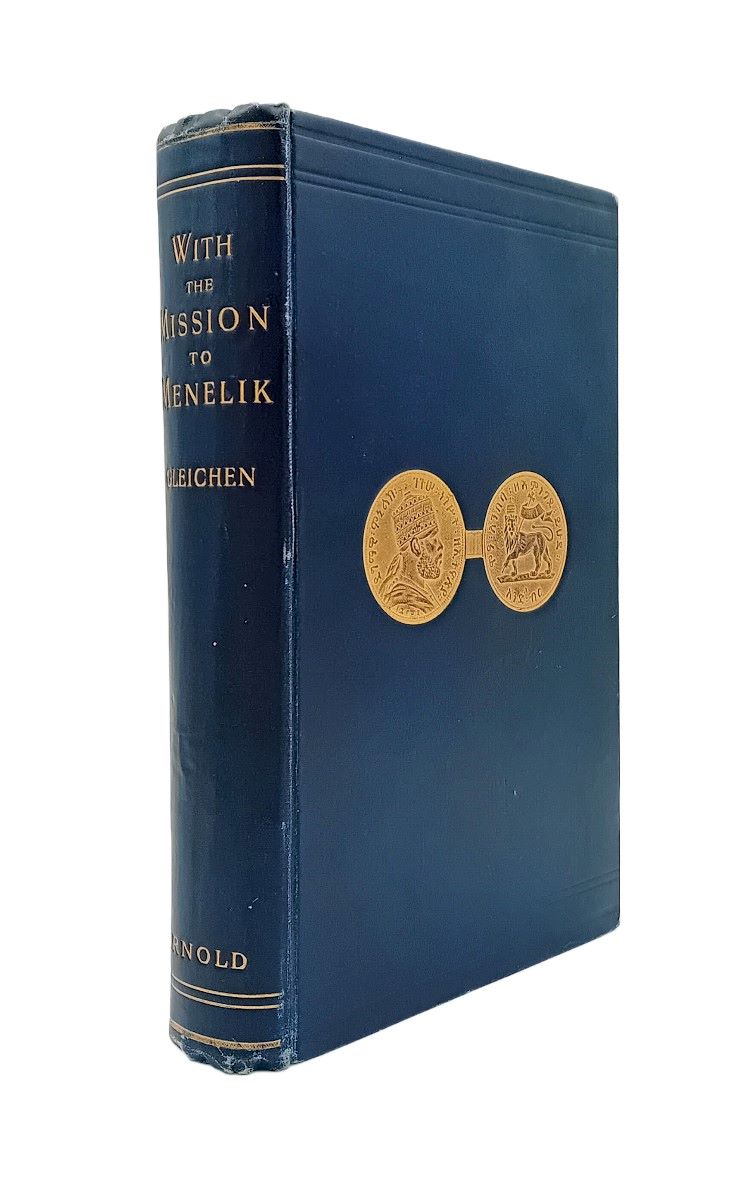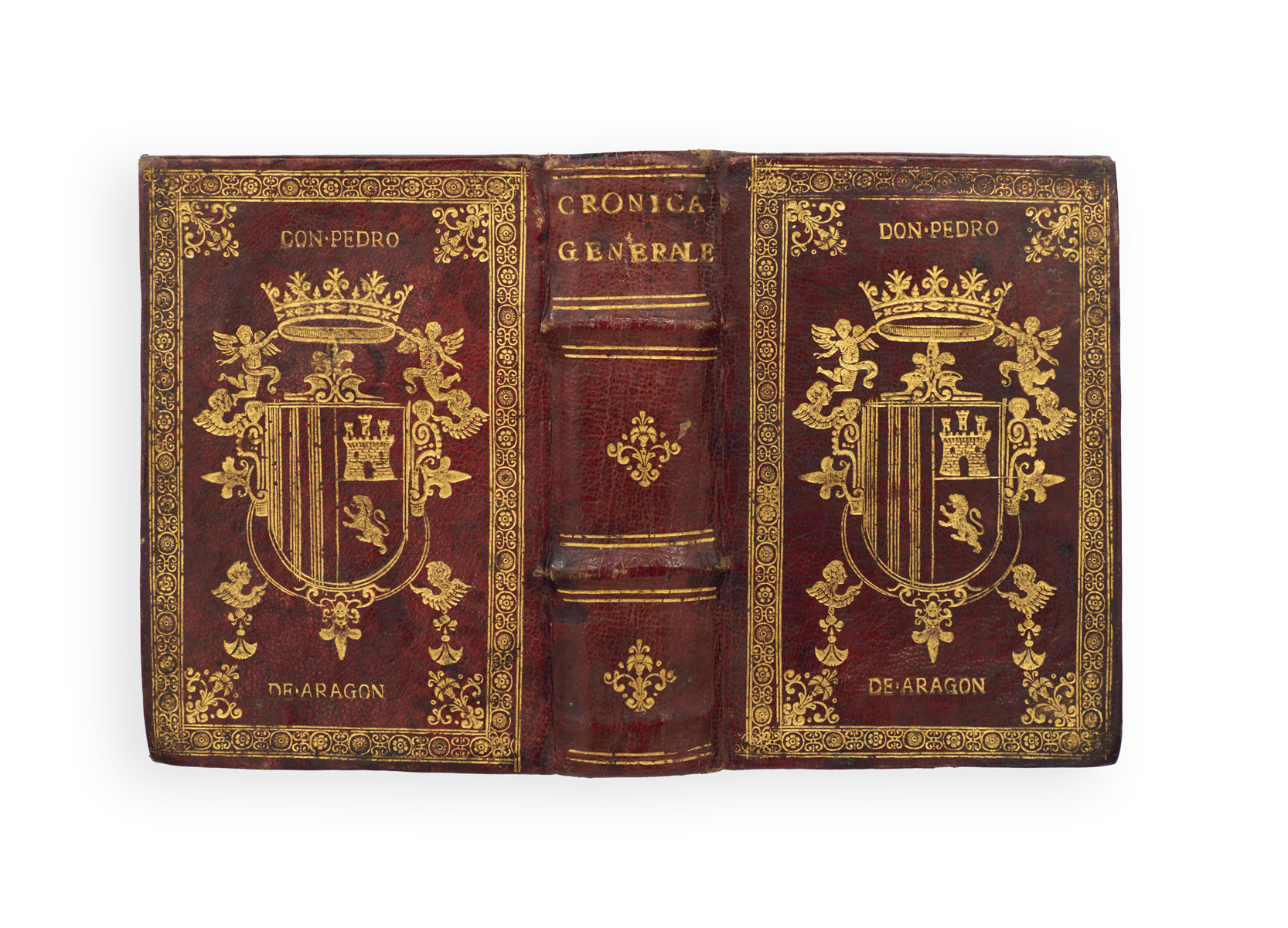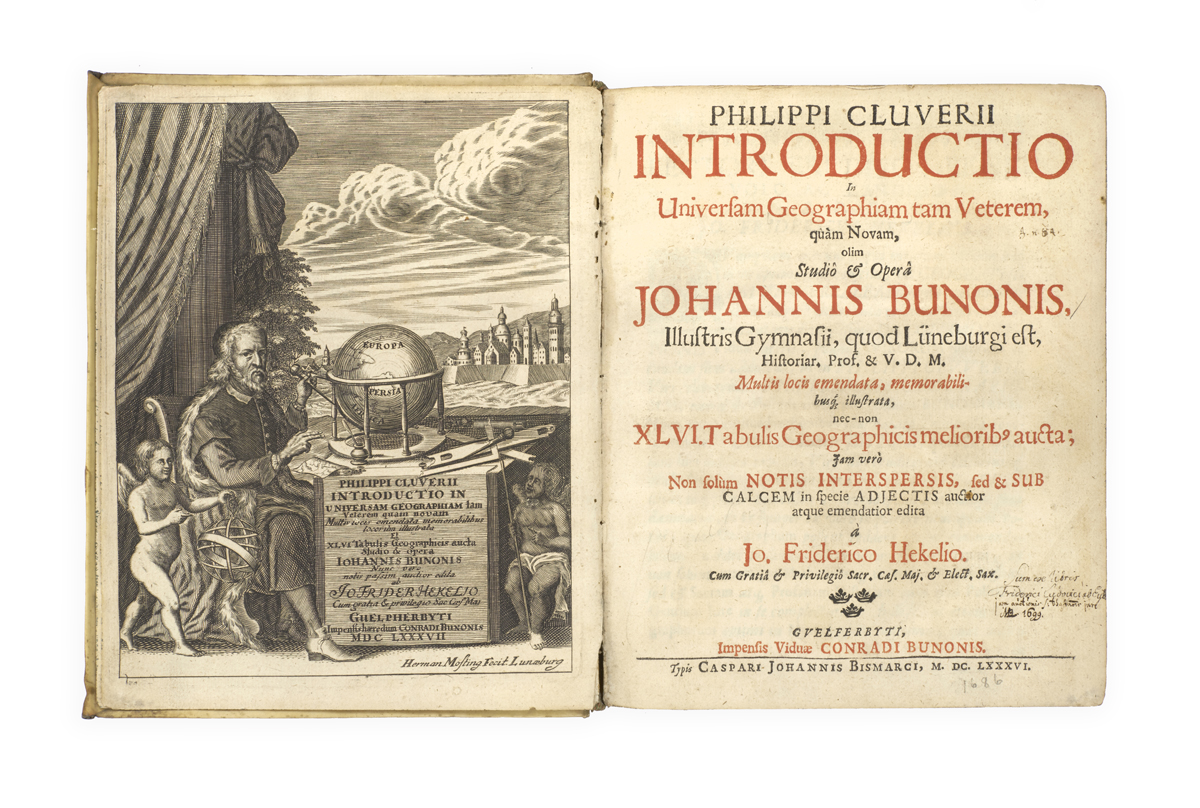
trade treaties with the conqueror of the Italians
GLEICHEN, Edward.
With the mission to Menelik 1897 ...
London, Edward Arnold, 1898.
8vo, pp. xi, [1 (blank)], 363, [1 (blank)], 32 (publisher’s catalogue dated February 1898); with half-title, photographic frontispiece depicting the members of the ‘mission to Menelik’ (including the author), 8 plates and numerous illustrations in text, and 2 folding maps; a little foxing to frontispiece and tissue guard; very good in original blue cloth, spine lettered in gilt, gilt medallion to upper cover, black endpapers; some wear to extremities; ‘W.G. Boyes’ stamped to rear endpaper.
First edition recounting the author’s participation in an 1897 diplomatic mission to Menelik II, Emperor of Ethiopia. An Anglicised German from the family of Hohenlohe whose hereditary estate dated back to the early seventeenth century, Gleichen served first as a courtier (he was Paige of Honour to the Queen between 1874 and 1879) before becoming a soldier in the British Army. In 1896, he was appointed intelligence officer to Rennell Rodd’s diplomatic mission to the Abyssinian Emperor Menelik II, who had recently registered a decisive defeat over the Kingdom of Italy in the First Italo-Ethiopian War. The expedition proved a resounding success, establishing trading rights for both parties. This work, first published a year after the mission, contains not only important details regarding the progress of the mission itself but also valuable information on Abyssinian politics and society and more specifically life in the recently founded capital of Addis Ababa: a map of the city can be found at the rear of the volume as well as a copy of the Treaty itself (alongside a number of appendices, illustrations, and maps). Of Menelik, Gleichen wrote that ‘[his] manners are pleasant and dignified; he is courteous and kindly, and at the same time simple in manner, giving one the impression of a man who wishes to get at the root of a matter at once, without wasting time in compliments and beating about the bush, so often the characteristics of Oriental potentates ... He also aims at being a popular sovereign, accessible to his people at all hours, and ready to listen to their complaints. In this, he appears to be quite successful, for one and all of his subjects seem to bear for him a real affection’ (pp. 152-153).

